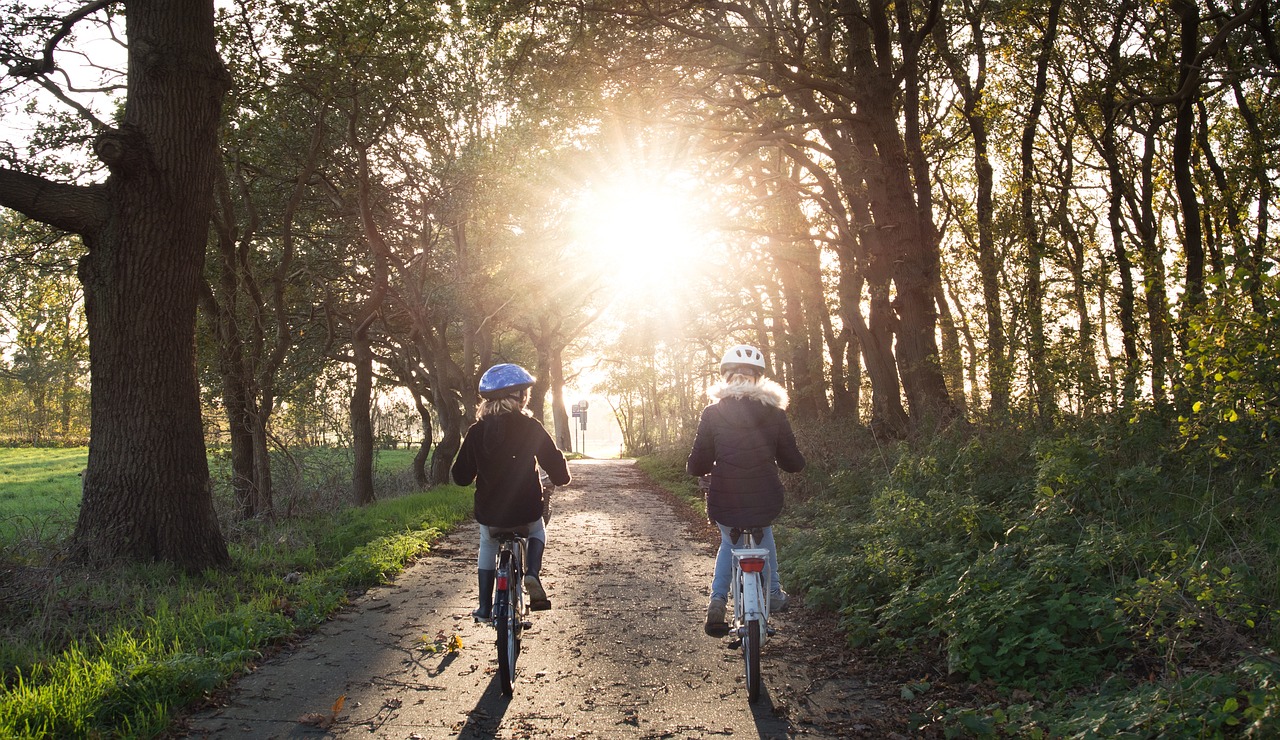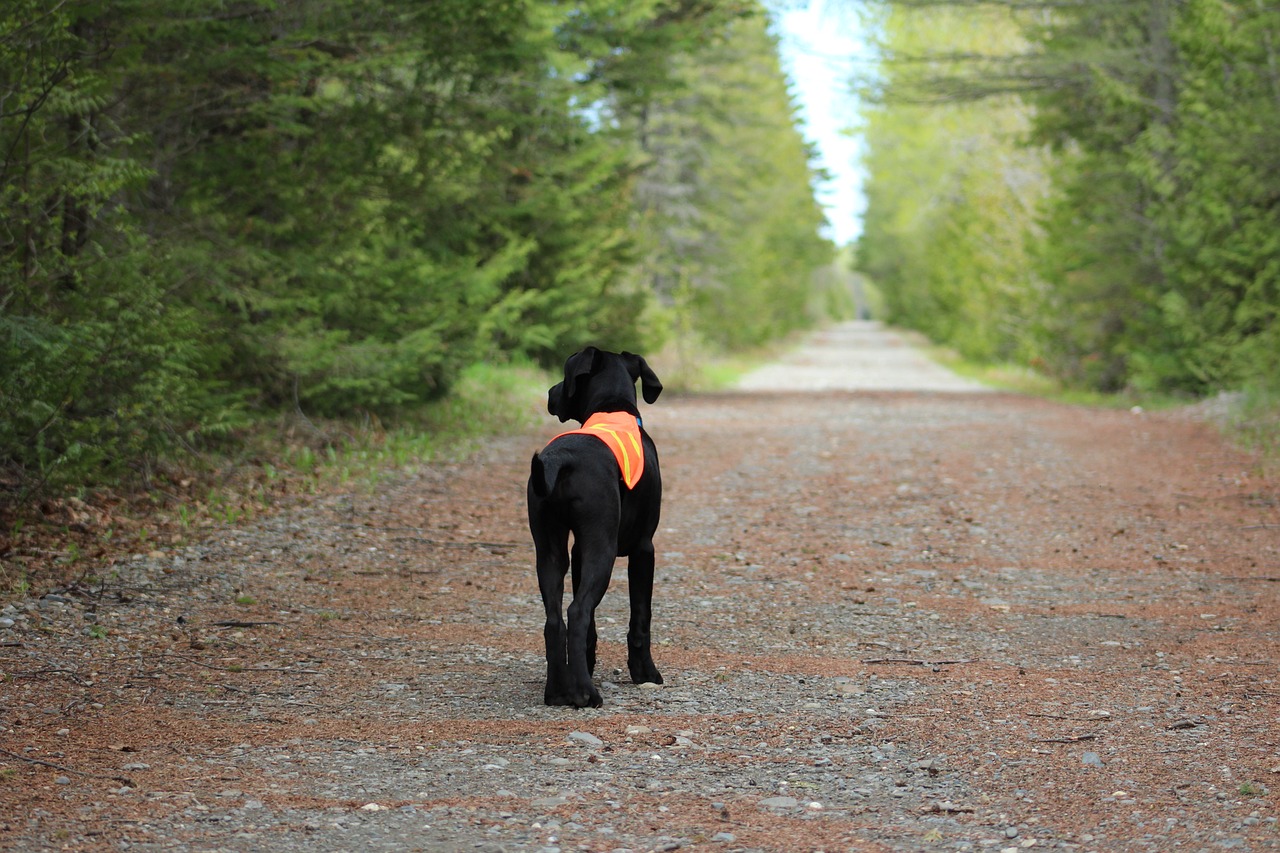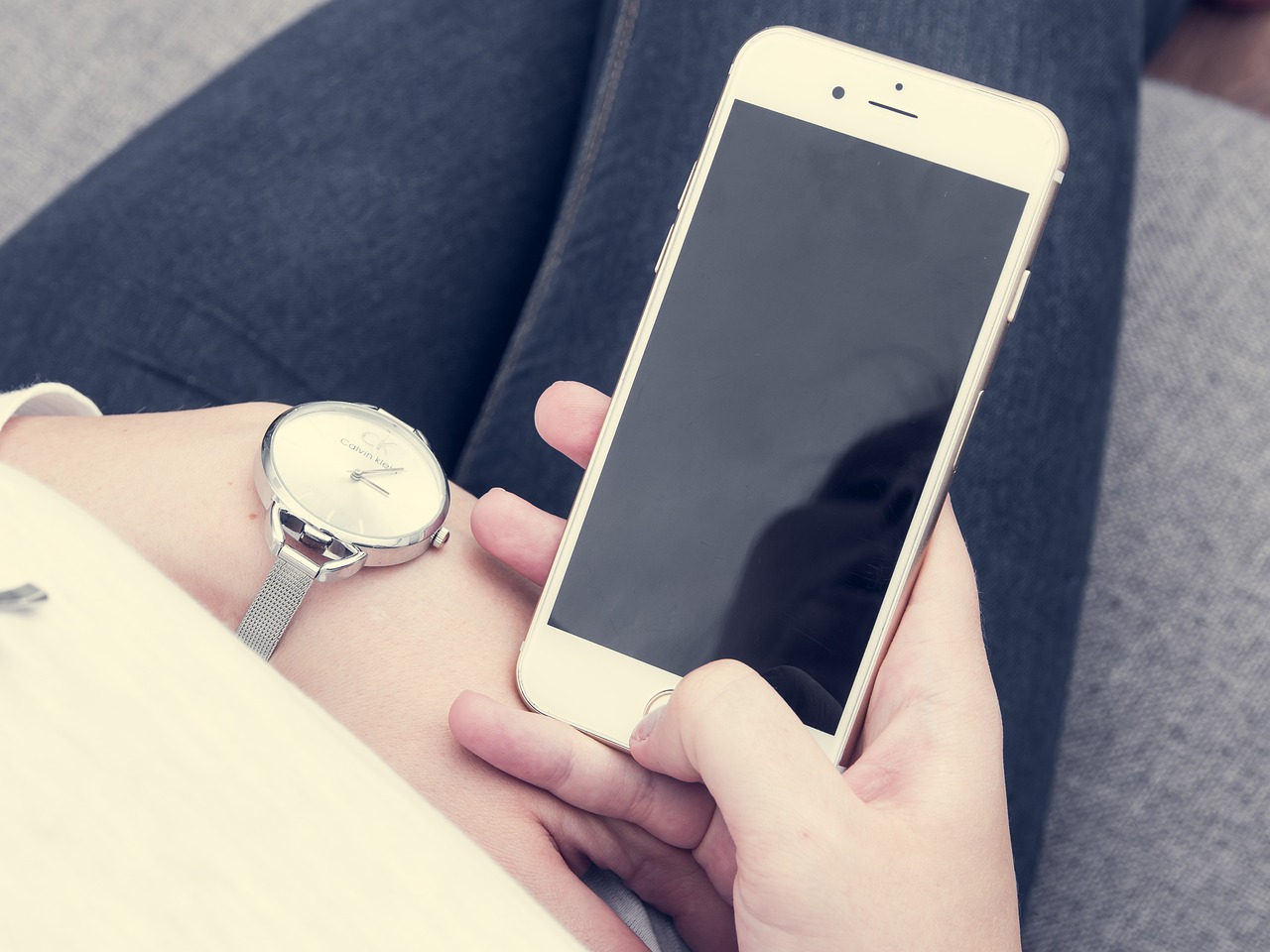Safety in Dating: How Secure Are Dating Apps?
In today's digital age, finding love or companionship has transformed dramatically, with dating apps becoming a primary avenue for singles. But amidst the excitement of swiping right and engaging in chat, a crucial question looms: how secure are these dating platforms? As much as they promise connection, they also present a myriad of potential risks that users must navigate. Understanding the security measures in place and recognizing the possible dangers can empower users to make informed choices while seeking meaningful relationships.
Many dating apps have stepped up their game by implementing various security features designed to protect users from unwanted attention and potential scams. These features can include profile verification, where users must confirm their identity through various methods, and encryption, which ensures that personal messages remain private and secure. However, the effectiveness of these measures can vary significantly across different platforms. So, while some apps may take user safety seriously, others may fall short, leaving their users vulnerable to risks.
Moreover, the convenience of dating apps can sometimes overshadow the inherent dangers. Users often find themselves in situations where they might encounter catfishing, harassment, or even identity theft. It's essential to be aware of these threats and to understand how to recognize the signs. For instance, catfishing scams involve individuals who create fake profiles, often using someone else's photos and information to deceive others. Recognizing the red flags associated with these scams can be the difference between a meaningful connection and a potentially harmful encounter.
In addition to catfishing, users must remain vigilant about their personal information. Sharing sensitive data such as your home address, phone number, or financial details can lead to privacy breaches that could have lasting consequences. Therefore, it’s crucial to adopt best practices for safeguarding your information while engaging with potential matches. Simple steps like avoiding the sharing of personal details early on, using the app's messaging system instead of giving out your phone number, and being cautious about the information you post in your profile can go a long way in protecting your privacy.
Ultimately, the security of dating apps is a shared responsibility between the platforms and their users. While developers must continuously improve their security measures, users must also be proactive in their safety. By understanding the features available and recognizing potential risks, individuals can navigate the world of online dating more securely and confidently. So, as you venture into this exciting realm of possibilities, remember to prioritize your safety and trust your instincts. After all, the goal is to find a meaningful connection without compromising your well-being.
- How can I tell if a dating app is secure? Look for features like profile verification, encryption, and user reviews regarding safety.
- What should I do if I suspect catfishing? Trust your instincts, look for inconsistencies, and report the profile to the app's support team.
- Is it safe to share my phone number on dating apps? It's best to avoid sharing personal contact information until you feel completely comfortable with the person.
- What are the signs of a fake profile? Watch for overly perfect photos, vague or generic bios, and reluctance to meet in person.
- How can I report suspicious behavior on dating apps? Most apps have a reporting feature; use it to alert the platform about any inappropriate or suspicious activity.

Understanding Dating App Security Features
In today's digital age, dating apps have revolutionized the way we meet potential partners. However, with this convenience comes the crucial question: how secure are these platforms? Many dating apps implement a variety of security features designed to protect users from potential threats and enhance their overall experience. Understanding these features is essential for anyone looking to navigate the world of online dating safely.
One of the most common security measures is profile verification. This process often involves confirming a user's identity through various methods, such as linking to social media accounts or providing government-issued identification. By ensuring that users are who they claim to be, dating apps can significantly reduce the chances of encountering fake profiles and catfishing scams. However, the effectiveness of these measures can vary from one app to another. Some platforms may offer a more rigorous verification process, while others might only require minimal information.
Another vital security feature is encryption. This technology protects users' personal information by converting it into a code that can only be deciphered by authorized parties. When you send messages or share your data on a dating app, encryption ensures that your information remains confidential and is not accessible to hackers or unauthorized users. It's like sending a secret message that only the intended recipient can read—pretty cool, right?
Additionally, many dating apps provide users with the ability to control their privacy settings. This means you can choose who can see your profile, photos, and personal information. For instance, some apps allow you to hide your profile from search results or restrict visibility to only those you've matched with. This level of control empowers users to manage their online presence more effectively and can significantly enhance their sense of security.
However, while these security features are essential, they are not foolproof. Users must remain vigilant and proactive in protecting themselves. It's crucial to stay informed about the specific security measures each app offers and to utilize them to their fullest potential. For example, if an app offers two-factor authentication, enabling it can add an extra layer of security to your account.
In summary, understanding the security features of dating apps is a vital step in ensuring a safe online dating experience. While profile verification, encryption, and privacy controls are essential tools, users must also take an active role in their safety. By being aware of these features and employing them wisely, you can significantly reduce risks and enjoy the process of finding meaningful connections online. So, the next time you swipe right, remember to take a moment to check the app's security features—your peace of mind is worth it!

Common Risks Associated with Dating Apps
While dating apps have revolutionized the way we meet potential partners, they come with their own set of risks that every user should be aware of. The convenience of swiping right or left can sometimes overshadow the potential dangers lurking behind the screens. From catfishing to harassment, the online dating landscape can be a minefield if one isn't careful. Understanding these risks is the first step toward navigating the world of online dating safely.
One of the most prevalent dangers is catfishing, where individuals create fake profiles to deceive others. This can lead to emotional distress and even financial loss. Imagine building a connection with someone only to find out they are not who they claim to be! It's akin to falling for a mirage in the desert—what seems appealing and real turns out to be nothing but an illusion. Users must remain vigilant and recognize the signs of deceit.
Another significant risk is harassment, which can manifest in various forms, from unsolicited messages to aggressive behavior. The anonymity of the internet can embolden some individuals to act inappropriately, making it crucial for users to know how to protect themselves. It’s essential to keep in mind that not everyone on these platforms has good intentions. Just like in the real world, there are people who may try to take advantage of others in the digital realm.
To give you a clearer picture, here’s a table summarizing some of the common risks associated with dating apps:
| Risk | Description |
|---|---|
| Catfishing | Creating fake profiles to deceive others for emotional or financial gain. |
| Harassment | Receiving unsolicited messages or aggressive behavior from other users. |
| Privacy Breaches | Sharing personal information that could lead to identity theft or unwanted attention. |
| Scams | Fraudulent schemes aimed at extracting money or sensitive information from users. |
Recognizing these risks is vital for a safer online dating experience. Users should always be cautious about the information they share and the individuals they engage with. If something feels off, it probably is! Your safety should always come first, and being informed is one of the best defenses against potential threats. Remember, just because someone seems charming online doesn’t mean they have your best interests at heart.
As we navigate through this digital dating landscape, it’s imperative to stay alert and proactive. By understanding the common risks associated with dating apps, you can arm yourself with the knowledge needed to enjoy a fulfilling and safe online dating experience.
Q: What should I do if I suspect someone is catfishing me?
A: If you suspect catfishing, look for inconsistencies in their story, request a video chat, and trust your instincts. If you feel uncomfortable, it's best to end communication and report the profile.
Q: How can I protect my personal information on dating apps?
A: Avoid sharing sensitive information such as your home address, phone number, or financial details until you fully trust the person you are communicating with. Use the app's privacy settings to enhance your security.
Q: What should I do if I experience harassment on a dating app?
A: Most dating apps have reporting features. Use them to report any inappropriate behavior. You can also block the user to prevent further contact.

Identifying Catfishing Scams
Catfishing scams are a significant concern in the world of online dating, where individuals create fake profiles to manipulate and deceive others. Imagine you’re chatting with someone who seems perfect, only to find out they aren’t who they claim to be. It’s like being lured into a trap with a shiny bait, only to discover the darkness behind it. To protect yourself from falling victim to these deceitful tactics, it’s essential to recognize the signs of catfishing and arm yourself with knowledge.
One of the first steps in identifying catfishing scams is to observe inconsistencies in the person’s profile and communication. If their photos look too good to be true, or if they refuse to share additional pictures, it’s time to raise an eyebrow. Genuine users are usually happy to share more about themselves. Additionally, if the person avoids video chats or makes excuses to not meet in person, these can be significant red flags.
Another common tactic of catfishers is to create elaborate backstories that often seem overly dramatic or complex. For instance, they might claim to be stationed overseas in the military, which can invoke sympathy and trust. However, these stories often unravel under scrutiny. If you find yourself asking, “Why can’t they just send a simple selfie?” or “Why do they always have a reason to avoid a video call?”—trust your instincts. These are often signs that something is amiss.
Additionally, be wary of anyone who quickly moves the conversation to private messaging platforms. This can be a tactic to circumvent the dating app’s security features and make it easier for them to manipulate the situation. If they pressure you to share your personal information or financial details, it’s a clear indication that you might be dealing with a catfisher. Remember, a genuine connection should develop naturally, without undue pressure or urgency.
To further illustrate the tactics of catfishing, consider the following table that outlines common behaviors associated with catfishers:
| Behavior | Description |
|---|---|
| Refusal to Meet | They always have an excuse to avoid in-person meetings. |
| Too Good to Be True | Profile pictures that seem overly polished or model-like. |
| Inconsistent Stories | Their background story changes frequently or seems exaggerated. |
| Pressure for Personal Info | They ask for sensitive information early in the conversation. |
In conclusion, being aware of these signs can significantly reduce your chances of falling victim to catfishing scams. Always remember to trust your gut feelings and do not hesitate to investigate further if something feels off. Your safety should always come first in the online dating world!

Red Flags to Watch For
When diving into the world of online dating, it's crucial to keep your eyes peeled for red flags that might indicate something is off with a potential match. Just like a seasoned sailor reads the winds and waves, you too must be vigilant to navigate the sometimes choppy waters of dating apps. One of the most significant signs to watch for is inconsistency in their stories. If your match frequently changes details about themselves or their life, it could be a signal that they are not being truthful. For example, if they claim to be a world traveler but can’t seem to remember the names of the places they’ve visited, it’s time to raise an eyebrow.
Another red flag is an overly eager approach. If someone is pushing for personal information or trying to rush the relationship, it might be a tactic to gain your trust quickly. This could lead to potential exploitation. Additionally, if they avoid meeting in person or always have an excuse ready, it might indicate they are not who they say they are. Trust your gut; if something feels off, it probably is.
Moreover, be wary of individuals who refuse to share their social media profiles or other forms of online presence. In today's digital age, it’s not unreasonable to expect someone to have a digital footprint. If they claim they don’t use social media or have no online presence, consider it a potential warning sign. It’s like trying to buy a car without a vehicle history report—there's a chance you might be getting a lemon.
Lastly, watch for signs of excessive flattery or love-bombing. While compliments can be flattering, if they come on too strong or too soon, it might be a tactic to manipulate your feelings. Healthy relationships are built on mutual respect and understanding, not on overwhelming affection that feels forced.
In conclusion, being aware of these red flags can significantly enhance your online dating experience. Remember, your safety and comfort should always come first. If you encounter any of these warning signs, don’t hesitate to take a step back and reassess the situation. Your intuition is a powerful ally in the quest for genuine connections.
- What should I do if I suspect someone is catfishing me?
If you suspect catfishing, try to verify their identity through video calls or social media. If they refuse, it may be best to cut off communication. - How can I protect my personal information while dating online?
Avoid sharing sensitive details like your home address, financial information, or personal identification numbers until you fully trust the person. - Is it safe to meet someone from a dating app in person?
Meeting in a public place is generally safe, but always inform a friend or family member of your whereabouts and plans. - What should I do if I feel uncomfortable during a date?
Trust your instincts; if you feel uncomfortable, it’s perfectly acceptable to leave the date. Your safety should always come first.

Reporting and Blocking Offenders
In the world of online dating, safety should always be your top priority. Unfortunately, not everyone you encounter on dating apps has good intentions. That's why knowing how to report and block offenders is crucial for maintaining a secure dating environment. Most dating applications come equipped with built-in features that allow users to report suspicious behavior or block profiles that make them uncomfortable. By utilizing these features, you take an active role in protecting not only yourself but also the community of users around you.
When you come across a profile that raises red flags—be it inappropriate messages, harassing behavior, or anything that feels off—it's essential to act swiftly. Reporting a user is typically a straightforward process. Most apps will have a dedicated button or link that says something like "Report" or "Flag Profile." Once you click on it, you’ll usually be prompted to select the reason for your report, which could range from harassment to fake profiles. This helps the app's moderation team investigate the issue more thoroughly.
After reporting a user, it’s also wise to block them. Blocking prevents them from contacting you further, ensuring you can continue your online dating journey without unwanted interruptions. The blocking feature is usually found in the same menu as the reporting option. Once you block someone, they won't be able to see your profile or send you messages, giving you peace of mind.
It's important to remember that while reporting and blocking can significantly enhance your safety, they are not foolproof solutions. Always stay vigilant and trust your instincts. If something feels wrong, it probably is. Here are a few additional tips to consider when reporting and blocking offenders:
- Keep a record of any inappropriate messages or interactions—screenshots can be helpful.
- Don't hesitate to report multiple users if you encounter similar issues; the more reports an app receives, the more likely they are to take action.
- Consider adjusting your privacy settings to limit who can contact you or view your profile.
By taking these steps, you not only protect yourself but also contribute to a safer dating environment for everyone. Remember, online dating should be an enjoyable experience, and with the right precautions, you can navigate it with confidence.
1. What should I do if I feel threatened by someone on a dating app?
If you feel threatened, immediately report the user to the app's support team and block them. If necessary, consider reaching out to local authorities.
2. How do I know if a profile is fake?
Look for inconsistencies in photos, overly perfect descriptions, or requests for personal information early in the conversation. Trust your gut feelings.
3. Can I report someone after I’ve already blocked them?
Yes, you can usually report a user even after blocking them. Check the app's support section for detailed instructions.
4. What happens after I report someone?
The app's moderation team will review the report and take appropriate action, which may include warnings, temporary suspensions, or permanent bans for the offending user.

Protecting Personal Information
In today's digital age, where everything seems to be just a click away, protecting your personal information while using dating apps is more crucial than ever. The convenience of online dating comes with its own set of challenges, and one of the most significant risks is the potential for privacy breaches. Imagine this: you’ve just matched with someone who seems perfect, and in the excitement of the moment, you share details about your job, your home address, or even your phone number. This can lead to unwanted consequences if the other person isn't who they claim to be. So, how can you safeguard your sensitive data while still enjoying the thrill of finding love online?
First and foremost, it’s essential to be mindful of the information you share on your profile. Many users tend to overshare, thinking that revealing more will make them more appealing. However, it’s vital to remember that less is often more. For instance, while it’s okay to mention your hobbies and interests, avoid disclosing your full name, exact location, or any other identifying information that could be misused. Instead, consider using general terms, like “I live in the city” rather than your specific neighborhood.
Another effective way to protect your personal information is by utilizing the privacy settings offered by dating apps. Most platforms provide options that allow you to control who can see your profile and what information is displayed. Take the time to explore these settings and customize them according to your comfort level. If an app allows you to hide your profile from search engines or restrict access to certain details, make sure to enable these features. Think of it as putting up a protective wall around your digital self—keeping unwanted visitors at bay.
Additionally, be cautious when chatting with potential matches. While it’s natural to want to connect and share stories, it’s wise to keep sensitive conversations to a minimum until you’re sure of the other person’s intentions. If someone pressures you to share personal details or seems overly eager to get information, consider it a red flag. Trust your gut—if something feels off, it probably is. Remember, it’s better to be safe than sorry.
Lastly, consider using dedicated messaging platforms instead of sharing your personal phone number right away. Many dating apps offer in-app messaging features that allow you to communicate without revealing your phone number. This not only adds a layer of security but also gives you the chance to gauge the other person’s intentions further before making any commitments.
In conclusion, protecting your personal information while using dating apps requires vigilance and common sense. By being cautious about what you share, utilizing privacy settings, and trusting your instincts, you can significantly reduce the risks associated with online dating. Just like you wouldn’t invite a stranger into your home without knowing them, don’t let your personal information fall into the wrong hands. Stay safe, and happy dating!
- What should I include in my dating profile?
Focus on your interests and hobbies, but avoid sharing sensitive information like your full name or address. - How can I report suspicious behavior on a dating app?
Most apps have a reporting feature; use it to alert the platform about any inappropriate behavior. - Is it safe to meet someone from a dating app in person?
Yes, but always meet in a public place and let someone know where you are going. - What if I feel uncomfortable during a conversation?
Trust your instincts and end the conversation if it doesn’t feel right.

Best Practices for Safe Online Dating
When it comes to online dating, safety should always be your top priority. With the excitement of meeting someone new, it’s easy to overlook potential risks. However, implementing a few best practices can significantly enhance your safety while navigating the dating app landscape. First and foremost, always remember that your safety comes first; it's not just about finding love, but also about protecting yourself.
One of the most crucial aspects of safe online dating is to meet in public places for your first few dates. Imagine this: you’ve been chatting with someone for weeks, and the chemistry is electric. You’re eager to meet face-to-face. Instead of opting for a secluded spot, choose a bustling café or a lively park. These environments not only provide a sense of security but also allow you to feel comfortable in a social setting. Plus, public places are great for keeping the conversation light and fun, which can ease any first-date jitters!
Another essential practice is to trust your instincts. If something feels off, it probably is. Your gut feeling is a powerful tool, and it’s there for a reason. For example, if your date is evasive about their background or seems overly eager to get you alone, take a step back and reassess the situation. It’s perfectly okay to end a date early if you feel uncomfortable. Remember, you’re not obligated to continue if the vibe doesn’t feel right.
Moreover, be cautious about sharing personal information. It’s tempting to share details about your life, but keep in mind that not everyone has good intentions. Always protect sensitive information such as your home address, workplace, or financial details until you’re certain about the person you’re dealing with. Sharing too much too soon can lead to privacy breaches, and nobody wants that! Instead, focus on building trust gradually through conversations.
To further enhance your safety, consider setting up a safety plan before meeting someone in person. This could include informing a friend or family member about your plans, sharing your location via your phone, or even scheduling regular check-ins. You might think of it as having a safety net while you take a leap into the dating world. It’s a simple yet effective way to ensure someone knows where you are and who you are with, just in case anything goes awry.
Lastly, familiarize yourself with the reporting features of the dating app you’re using. Most platforms have mechanisms in place for users to report suspicious behavior or block individuals who make them uncomfortable. Being proactive about this can help create a safer environment for everyone. If you encounter any red flags or feel threatened, don’t hesitate to take action. Reporting not only protects you but also helps others by keeping the community safer.
- What should I do if I feel unsafe on a date?
If you ever feel unsafe, trust your instincts and leave the situation. Make sure to have a plan for transportation, and don’t hesitate to reach out to a friend or family member for support.
- How can I tell if someone is genuine on a dating app?
Look for consistency in their stories, verify their profile through social media, and pay attention to how they communicate. Genuine individuals will typically be open and willing to share more about themselves.
- Is it safe to share my phone number with someone I met online?
It's best to wait until you feel comfortable and have established a level of trust. Consider using in-app messaging features before exchanging personal contact information.

Meeting in Public Places
When it comes to online dating, the transition from chatting behind a screen to meeting face-to-face can be both exhilarating and nerve-wracking. One of the most crucial steps you can take to ensure your safety during this transition is to choose public places for your first meetings. Think about it: a bustling café, a lively park, or even a popular restaurant filled with other patrons can provide a layer of safety that a secluded spot simply cannot. Public places are not only safer, but they also offer the chance to observe how your date interacts with the world around them, giving you valuable insights into their character.
Why is this so important? Well, meeting in a public place significantly reduces the risk associated with blind dates. You never really know who you're meeting until you're face-to-face, and being in a crowded environment can act as a safety net. If things don’t feel right, you can easily excuse yourself and leave without raising too much suspicion. Plus, there’s comfort in the presence of others; you’re not alone, and that can be a huge relief.
Here are some considerations when selecting a public meeting place:
- Choose familiar locations: Opt for places you know well. This familiarity can help you feel more at ease and in control.
- Look for well-lit areas: Safety is paramount, so ensure your meeting spot is well-lit and busy, especially if you’re meeting in the evening.
- Avoid isolated spots: Steer clear of parks or venues that are too secluded. While they may seem romantic, they can also be risky.
Additionally, it’s a good idea to inform a friend or family member about your plans. Share your location and the time you expect to be back. This simple act can provide an extra layer of security, as someone will be aware of your whereabouts. You could even arrange for a check-in call or text to let them know you’re safe.
Ultimately, the goal is to create a comfortable atmosphere that allows you to get to know your date without compromising your safety. Remember, it’s perfectly okay to prioritize your well-being over being polite. If your date suggests a location that feels off or uncomfortable, don’t hesitate to propose an alternative that makes you feel more secure. After all, your safety should always come first.
1. Why is meeting in public places safer?
Meeting in public places is safer because there are more people around, which can deter any potential harmful behavior and provide you with a quick escape if needed.
2. What are some good public places for a first date?
Good public places for a first date include coffee shops, parks, restaurants, or even local events like fairs or markets where there are many people around.
3. Should I inform someone about my date plans?
Yes, it’s a good practice to inform a friend or family member about your plans, including where you’re going and who you’re meeting. This adds an extra layer of security.
4. What if I feel uncomfortable during the date?
If you feel uncomfortable at any point, trust your instincts. You have every right to excuse yourself and leave the situation. Your safety is the top priority.

Trusting Your Instincts
When it comes to online dating, trusting your instincts can be your best ally. Think of your gut feelings as an internal radar, constantly scanning for danger or discomfort. Have you ever met someone online who just didn’t feel right? Maybe their messages seemed too rehearsed, or they avoided questions about their life. These feelings are not just coincidences; they are your instincts trying to protect you. In the world of dating apps, where profiles can be as polished as a movie script, it’s essential to tune into those subtle signals.
In many ways, trusting your instincts is like navigating through a maze. Each twist and turn can lead you closer to a meaningful connection or take you down a path filled with red flags. Here are some scenarios where your instincts might kick in:
- If someone is overly eager to share personal details while you barely know each other, it’s a signal to slow down.
- Inconsistent stories about their life or background can be a major red flag; your gut may be telling you that something doesn’t add up.
- When a person pushes for a quick transition from chatting to meeting in person, it might be time to hit the brakes and reassess.
But how do you differentiate between mere nervousness and genuine discomfort? It’s all about paying attention to your feelings. If your heart races or you feel uneasy during conversations, take a step back. Ask yourself, “Why do I feel this way?” Sometimes, the answers are right in front of you, often hidden in the smallest details.
Moreover, trusting your instincts doesn’t mean ignoring all red flags while being overly cautious. It’s about finding a balance. For instance, if someone seems too perfect, it’s okay to question their authenticity. Remember, if something feels off, it probably is. Your instincts are honed from a lifetime of experiences; they are your personal safety net. So, when in doubt, don’t hesitate to pause and reassess the situation.
Additionally, consider discussing your feelings with friends or family. Sharing your experiences can provide valuable perspectives and help you clarify your instincts. They might see things you don’t, or they could simply reassure you that your feelings are valid. After all, a second opinion can sometimes illuminate what our instincts are trying to convey.
In conclusion, trusting your instincts is not just about avoiding danger; it’s also about recognizing when something feels right. Whether it’s a potential partner’s charm or the chemistry you feel during conversations, your instincts can guide you toward meaningful connections. So, the next time you’re swiping through profiles or chatting with a match, remember to listen to that inner voice. It just might lead you to the right person—or help you dodge a bullet.
Q1: How can I tell if my instincts are right?
A1: Your instincts often manifest as strong feelings of discomfort or unease. Trust these feelings, and if something feels off, take time to reassess.
Q2: Is it normal to feel nervous when meeting someone from a dating app?
A2: Absolutely! Feeling nervous is completely natural. Just remember to listen to your instincts and prioritize your safety.
Q3: What should I do if I feel uncomfortable during a conversation?
A3: If you feel uncomfortable, it’s okay to end the conversation or take a break. Always prioritize your feelings and safety.
Q4: Can I trust my instincts even if they seem irrational?
A4: Yes! Your instincts are shaped by your experiences. If something feels wrong, it’s worth paying attention to, even if it seems irrational.
Frequently Asked Questions
- What security features do dating apps typically have?
Most dating apps implement security features such as profile verification, which helps confirm that users are who they claim to be. Additionally, many apps use encryption to protect your messages and personal data from unauthorized access. These measures aim to create a safer environment for users while they connect with potential partners.
- What are the common risks of using dating apps?
While dating apps can be a great way to meet new people, they come with risks like catfishing and harassment. Catfishing occurs when someone creates a fake profile to deceive others, while harassment can manifest as unwanted messages or aggressive behavior. Being aware of these risks is crucial for safe online dating.
- How can I identify catfishing scams?
To spot catfishing scams, look for red flags such as inconsistent information in a user's profile or overly polished photos that seem too good to be true. If someone avoids video calls or is reluctant to meet in person, these could be signs of deception. Always trust your gut feelings and proceed with caution.
- What should I do if I encounter a suspicious profile?
If you come across a suspicious profile, most dating apps provide a way to report the user. You can usually find this option in the app's settings or on the user's profile page. Additionally, blocking the user can help protect your experience and ensure that they cannot contact you again.
- How can I protect my personal information on dating apps?
To safeguard your personal information, avoid sharing sensitive details like your home address or financial information. Use the app's messaging system instead of giving out your phone number too soon. Always be cautious about what you share until you feel completely comfortable with the person you're chatting with.
- What are the best practices for safe online dating?
When it comes to online dating, some best practices include meeting in public places for the first few dates and always informing a friend or family member about your plans. Trusting your instincts is also vital; if something feels off, don't hesitate to walk away from the situation.



















